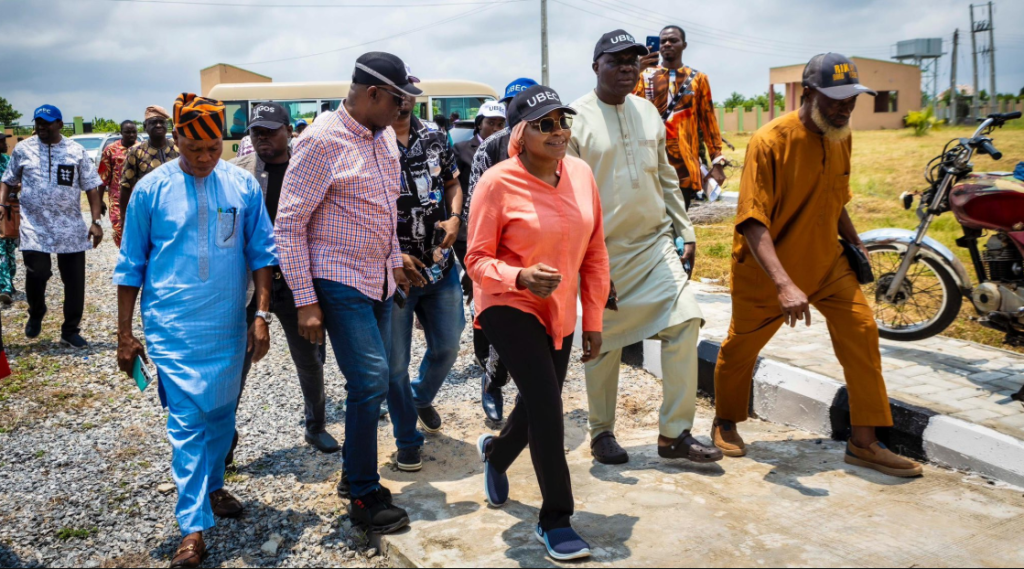Aisha Garba, the Executive Secretary of the Universal Basic Education Commission (UBEC), recently embarked on an inspection tour of several riverine communities in Lagos State, underscoring the Federal Government’s commitment to expanding inclusive and equitable education across Nigeria. The tour, which encompassed Ibeshe, Moba, Ojo, Olorunda, and Badagry Local Government Areas, focused on assessing the progress of key educational projects and reinforcing the government’s dedication to providing quality learning opportunities for every Nigerian child, particularly in underserved communities. Garba’s visit highlighted the importance of collaboration between UBEC, local governments, and traditional institutions in achieving this crucial national objective.
A significant stop on the tour was the inspection of the Smart School project in Epeme Village, Olorunda Local Council Development Area (LCDA). This innovative initiative aims to provide a state-of-the-art learning environment equipped with modern technology and resources, serving as a model for quality education in the region. Garba reassured Oba Kososko, the Kabiyesi of Iworo, and the local community of UBEC’s commitment to completing and delivering the facility promptly. This project represents a significant stride towards bridging the digital divide and ensuring that children in these communities have access to the same learning opportunities as their urban counterparts. The Smart School model, once successfully implemented, can be replicated in other areas, further expanding the reach of quality education.
Further emphasizing the historical significance of education in the region, Garba visited St. Thomas Primary School in Badagry, established in 1843 and recognized as the first primary school in Nigeria. This visit served as a powerful reminder of the enduring legacy of education in the country and the importance of preserving and restoring such historical sites for future generations. St. Thomas Primary School stands as a testament to the long journey of educational development in Nigeria, highlighting the progress made and the ongoing efforts to ensure every child has access to quality learning. The preservation of this historical site serves as an inspiration and a tangible link to the foundations of education in Nigeria.
Garba was accompanied on the tour by the Deputy Executive Secretary (Technical) of UBEC, the Chairmen of Badagry, Olorunda, and Badagry West LCDAs, and other senior UBEC management staff. This collaborative presence demonstrated the shared commitment of various stakeholders in advancing access to quality basic education in these communities. The involvement of local leadership and traditional authorities reflects a comprehensive approach to educational development, ensuring community ownership and sustainability of these initiatives.
The collaborative efforts between UBEC, local governments, and traditional institutions demonstrate a concerted approach to addressing the educational needs of historically marginalized communities. By working together, these entities strengthen the foundation for a brighter future for Nigeria. The combined expertise and resources of these organizations are essential for overcoming the challenges of providing equitable education access, particularly in geographically challenging areas. This collaborative model fosters a sense of shared responsibility and ensures that the educational initiatives are tailored to the specific needs of each community.
Garba’s tour and the projects she inspected underscore the government’s dedication to leaving no child behind in its pursuit of quality education for all. The emphasis on riverine and historically significant communities highlights the commitment to reaching even the most remote and underserved populations. These efforts are crucial for building a more equitable and prosperous future for Nigeria, where every child has the opportunity to reach their full potential. The investment in education, especially in these communities, represents an investment in the future of the nation, paving the way for sustainable development and a more inclusive society.


